Dealers feel the heat as kit sales plummet and costs rocket
The realisation that a long-held business was facing a financial crunch that threatened its very existence was an unwelcome experience for several machinery dealership owners last year.
A combination of factors – from an easing of demand for new kit, especially for tractors and other high-ticket purchases, to the cash-draining impact of substantially higher interest payments on stock machine finance – brought a number of well-regarded firms to their knees.
Equally, some owners took the tough decision to cut back or close businesses while they were solvent in the face of challenging prospects, no doubt after difficult discussions and sleepless nights.
The result: an unprecedented number of machinery dealerships closing their doors and being put in the hands of administrators or liquidators.
See also: Up horn, down corn in UK tractor market
Last-minute salvation
On a positive note, buyers were found for at least parts of two collapsed dealerships – Balgownie in Aberdeenshire and Burdens Group in Lincolnshire.
A number of jobs were secured, and sales and service outlets continued to serve customers.
The closures have also brought opportunities for profitable dealers to recruit much-needed workshop staff and take on new franchise agreements and territories.
Opportunities also existed for experienced technicians to set up their own “one man and a van” operations to fill a void in servicing and repairs support.
In some cases, businesses with no succession or sell-on prospects were closed and liquidated so the owners could extract value built on long hours and dedication to customers.
Steve Thorley Potato Equipment in Lincolnshire was among among them.
“The potato sector that we specialise in is very volatile, and since the business didn’t really make any money in 2022 and 2023, and we couldn’t see things getting any better, we decided to close while we could still pay all the local and other suppliers we had come to rely upon,” says Steve.
He now handles potato machinery sales on a commission basis.
Having started out providing local repairs and servicing, the business became a country-wide operation.
It employed up to 20 people serving potato growers across the UK, and at one time built new Reekie harvesters and other equipment.
The progressive closure, starting with the workshop, culminated in a January 2024 voluntary liquidation managed by McTear Williams & Wood.
“It was a hard but necessary decision,” says Steve.
Cashflow challenges
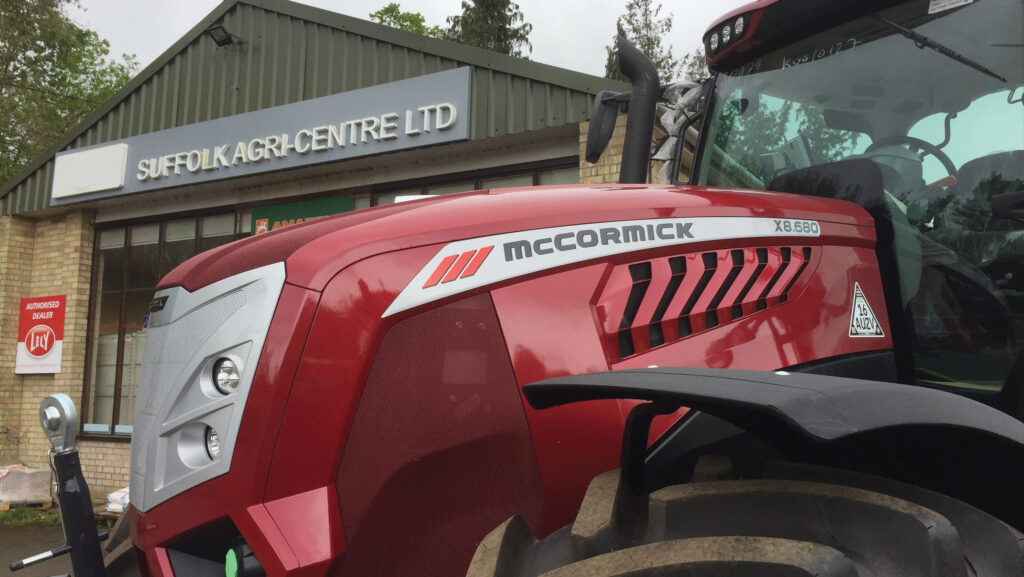
Suffolk Agri-Centre succumbed in early 2024 © Suffolk Agri-Centre
Suffolk Agri-Centre’s closure, in Pakenham near Bury St Edmunds, was more precipitous.
The first signals emerged in mid-February when farmers calling at the firm’s rented premises found the gates firmly locked and the site deserted after more than 30 years’ trading.
Customers lamented the closure in an online forum and recalled the advice and service they had received.
Confirmation came that the business had run out of money, a situation described as “inevitable given the low margins” on machinery sales.
Suffolk Agri-Centre held franchises for implement manufacturers such as Amazone, Krone and Teagle, and McCormick tractors.
All 11 employees were made redundant.
McTear Williams & Wood was appointed official liquidator in early March and quickly arranged an auction of stock and equipment to raise cash to pay preferential creditors.
Just days later, Aberdeenshire agricultural and construction machinery dealership and plant hire business Balgownie was placed under the supervision of Johnston Carmichael administrators.
This followed an unsuccessful attempt to raise capital to meet an immediate need for cash that resulted from under-reporting of £1.13m VAT and no provision for consequent penalties.
Managing director Mike Singer confirmed:
“As a result of cashflow issues, the board of directors is deeply saddened to announce that we have had to make the difficult decision to appoint administrators to the company with immediate effect.”
Continuing to trade in administration was chosen from various options, as joint administrator Richard Bathgate explained:
“The company had stock which could be sold at full value and orders for items, including trailers, that could be fulfilled to generate cash.
“It offered the possibility of achieving a significantly greater value for the company’s business and assets than if it were placed in liquidation, particularly given its well-known brand, the supplier dealerships it had, and its strong customer base.”
The associated companies Balgownie and Balgownie Rentals traded in administration with 17 of its original 24 staff between mid-March and mid-April while potential buyers were sought.
MacGregor Industrial Supplies (MIS), a £44m-turnover diverse distribution and services business, stepped in.
It made a winning bid for the business and certain assets, including its wholly-owned premises.
It paid £220,000 for stock, vehicles and equipment, £280,000 for the company’s Turriff site, and £1.06m for the depot on Thainstone Business Park.
The deal secured 15 jobs.
Bobcat confirmed the Balgownie team’s continuing relationship by appointing MIS as its distributor across the north of Scotland.
However the Develon (formerly Doosan) construction equipment and Ifor Williams franchises went elsewhere.
The rump of the Balgownie businesses – renamed FB Realisations – remain in administration pending the finalisation of all affairs.
Collings Brothers
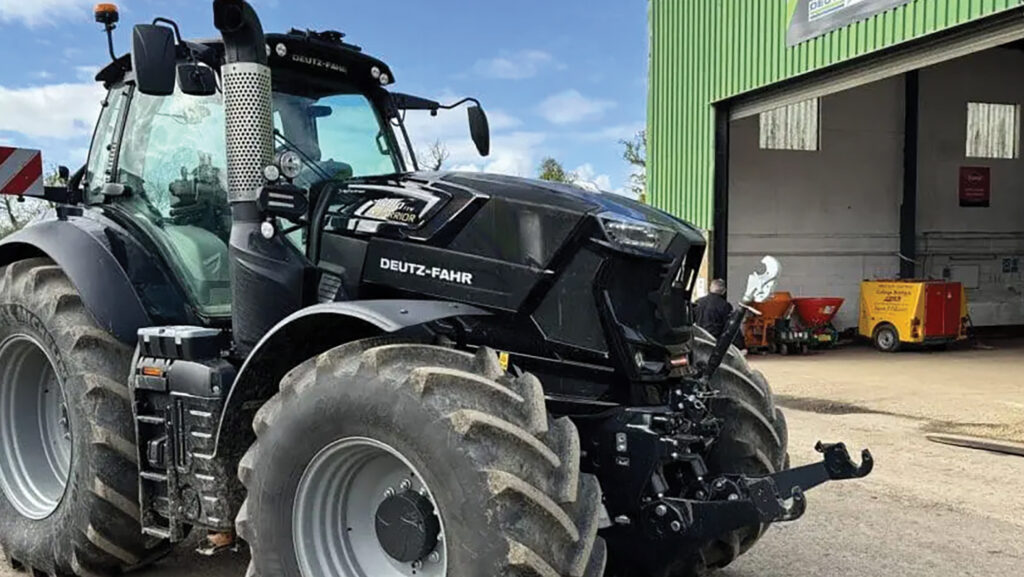
Hilco staged a two-day sale of Collings Bros’ stock and facilities © Collings Brothers
March was also the month that directors of Collings Brothers of Abbotsley in Cambridgeshire decided to call it a day.
The long-time Case IH dealer lost that franchise four years earlier and handled Deutz-Fahr alongside Merlo subsequently, employing 22 people in all.
The business was solvent but high interest rates, a suppressed market for agricultural machinery and the difficulty of recruiting workshop staff brought matters to a head.
The directors stated: “The current economic situation has put a lot of pressure on the business, with high stocking charges and a reduction in sales due to the state of the market.
“Together with staff shortages, this has made it impossible to continue.”
Hilco Valuation Services held a two-day online auction of stock and equipment, and also offered for sale the company’s 1.3ha freehold property at St Neots.
Domino effect
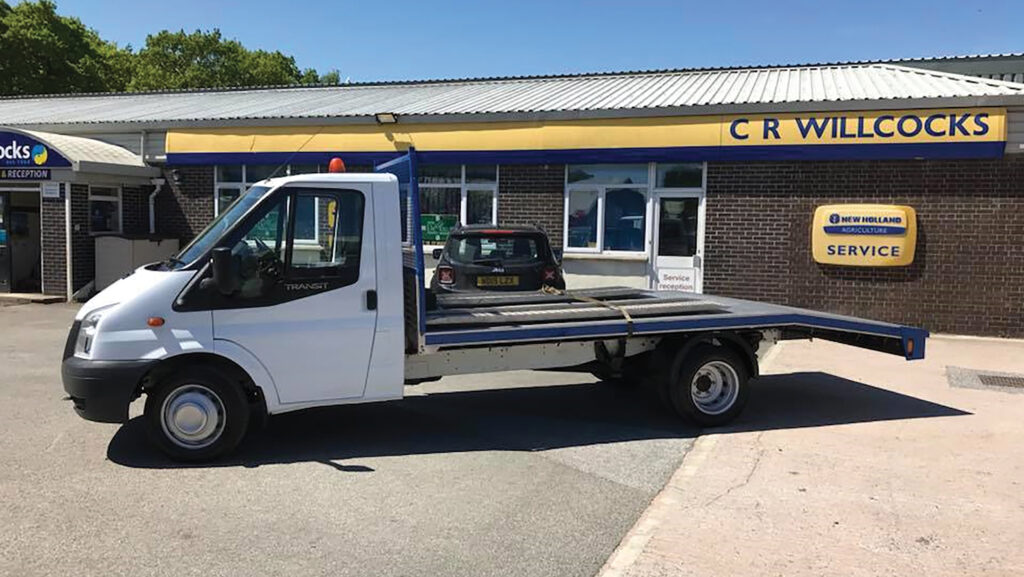
An Abbott Commercials beavertail at CR Willcocks in Devon © Abbott Commercials
In June, doubts surfaced about the situation at CR Willcocks in Newton Abbott, Devon.
The dealership was first established in 1964 and one of the longest-running New Holland outlets in the West Country.
With the firm’s website and social media presence deleted, the only clue to its fate was a “permanently closed, customers will be contacted” notice at the Heathfield premises.
Confirmation emerged with the appointment of MB Insolvency and a voluntary winding up, followed by an online auction conducted by Asset Management Services (AMS).
Three former staff members were taken on by neighbouring New Holland dealer Andrew Symonds when it was allocated the Willcocks territory.
Meanwhile, the planned closure of Grantham-based dealership RC Setchfield last July was well publicised as “entirely due to the imminent retirement of Richard Setchfield after more than 40 years in business”.
The firm had signed up to Merlo and Deutz-Fahr only that year.
However it was all but closed by the end of October 2024 after a Bagshaws/Brown & Co on-site auction of new and used stock, service vehicles, parts and implements.
Burdens Group falls
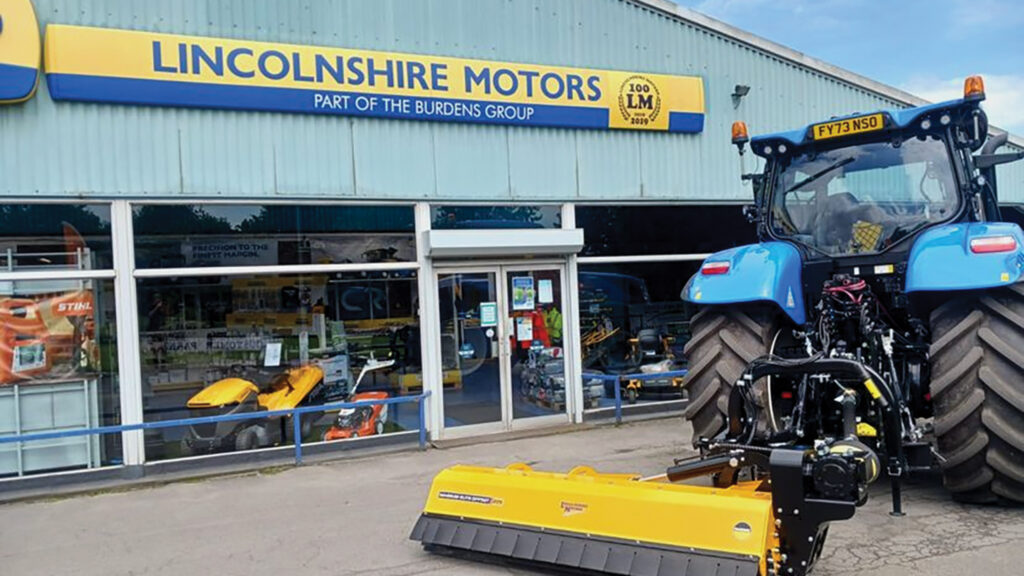
The Burdens Group was sold to neighbouring dealers Ernest Doe and Russell’s © Burdens Group
The most high-profile closure of the year was surely that of Lincs-based Burdens Group in August after directors had earlier recognised an impending cashflow crisis.
The four-branch New Holland dealership’s financial crunch came about as a result of deteriorating sales that were forecast to prevent the business from keeping within its £650,000 overdraft limit.
The situation was made worse by an imminent VAT bill of around £750,000, rendering Burdens Group cashflow insolvent.
The company, despite a recorded turnover of £24.9m in 2022, was placed in administration.
Practitioners at Begbies Traynor facilitated a New Holland-approved pre-pack business and assets sale to neighbouring dealers.
Russell’s paid just over £298,500 for the Burdens Group’s Louth and Brigg locations in north Lincolnshire.
Ernest Doe & Sons stumped up just over £275,000 for the North Kyme and Sutterton branches.
A significant amount of tangible assets not purchased through the agreement were sold at auction by Eddisons Commercial in October.
Joint administrator Gareth Rusling hailed the agreement for saving 68 jobs and the four dealership locations.
Russell’s and Ernest Doe gained New Holland territory to further expand their operations.
Russell’s subsequently relinquished part of its existing area in Derbyshire to Rea Valley Tractors, including the sale of a relatively new depot at Cubley.
Opened in 2019, the former Hallmark Tractors location is now providing larger, less constrained and more modern facilities for RVT’s New Holland, JCB and Kuhn franchises.
This replaces the shuttered Sudbury branch a few miles away.
CT Hayton
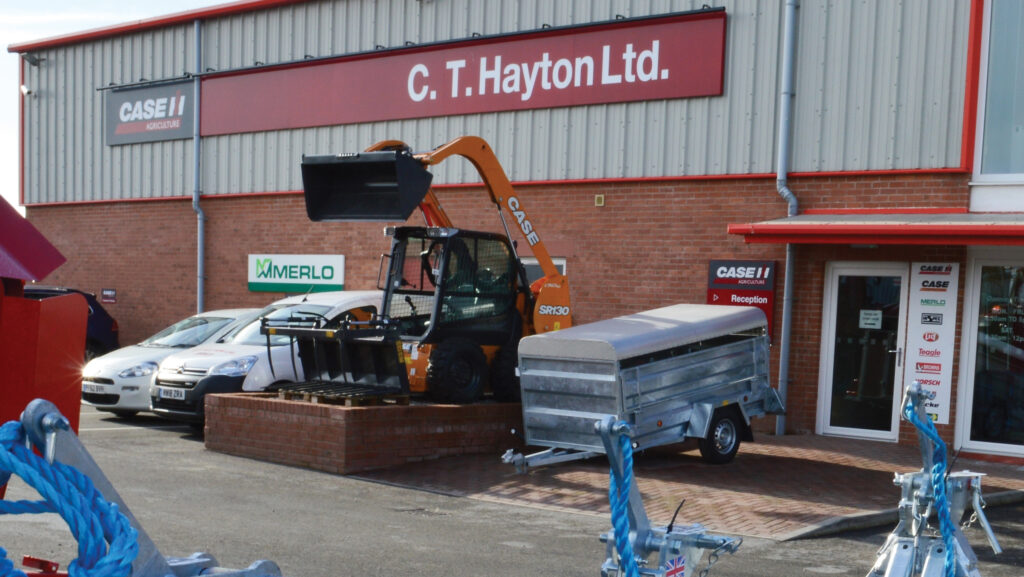
Cumbria dealer CT Hayton closed in October © CT Hayton
October was also the month that Case IH dealer CT Hayton fell victim to the unfavourable sales environment.
They were placed in administration under the wing of specialists at RSM UK Restructuring Advisory.
A directors’ statement revealed the news: “It is with deep regret and a heavy heart to have to announce that CT Hayton will be closing its doors for the final time on 18 October 2024.
“We have been a family-owned and run business since 1928, proudly serving the farming community in Cumbria and beyond, and would like to thank all our wonderful customers, suppliers and team of fantastic staff for their support over the years.”
The business had 34 employees across two depots at Kendal and Wigton, representing Case IH and Merlo among a selection of franchises.
Full accounts for the year to November 2023 showed a relatively modest drop in turnover at £11.4m versus £12.8m in 2022 but also a further increase in costs.
Most notably, interest payments totalled more than £86,000 versus £25,000 in the previous year, contributing to a net loss of £580,000, compared with £146,000 in 2022.
An online auction of machinery, parts and workshop equipment was held in November.
In mid-December, Malpas Tractors, the £42m turnover multi-branch dealership operating in north Wales and north-west England, was placed in administration with Forvis Mazars.
43 of the 69 staff were made redundant.
Joint administrator Richard Hough said:
“The company has experienced cashflow difficulties resulting from difficult trading conditions in the sector; we are keeping the financial position of the company under review while exploring interest and potential buyers.”
From its base in Wrexham, Malpas Tractors had built its New Holland network to six branches by 2018, but its territory was lost with the Rea Valley Tractors appointment in 2022.
The following year, the Latham and Condor Green depots in Lancashire took on the Valtra franchise alongside Kuhn, Merlo, Shelbourne Reynolds and Bunning, and ScanStone and AVR potato equipment.
The business, celebrating its 35th year in 2024, was rocked by the death of managing director Paul Reeves in August.
It continued to be run by co-owners Edward and Rachael Reeves until they took the difficult decision to appoint administrators.
MKM Agriculture
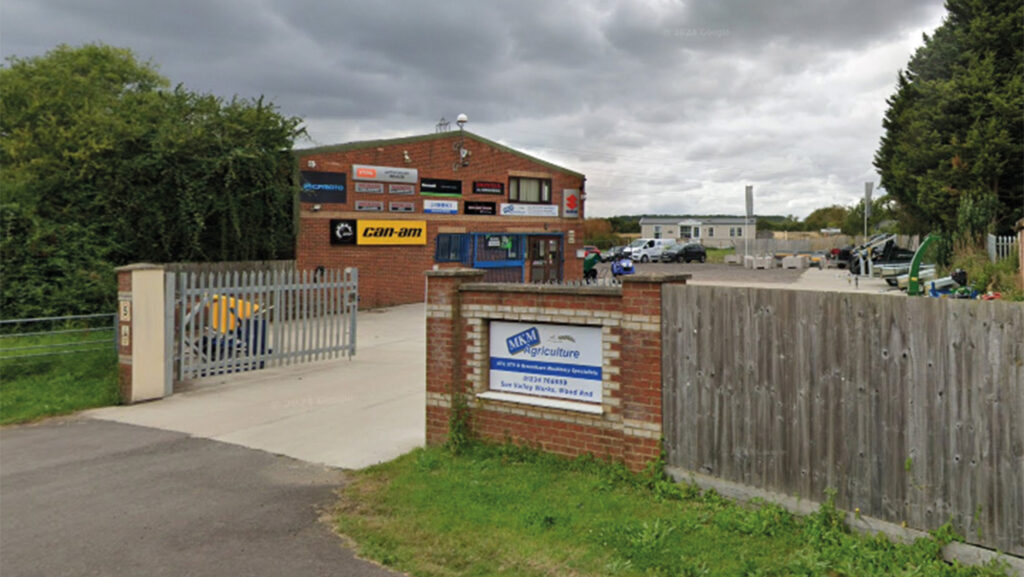
MKM Agriculture shut up shop late last year © MKM Agriculture
Most recently, the directors of MKM Agriculture, based at Marston Moreteyne in Bedfordshire, decided to close their business while solvent at the end of December.
MKM was a two-branch operation specialising in Iseki tractors, several ATV brands, and small-scale implements until the Ixworth Thorpe site in Suffolk was shut down earlier in the year.
In a statement, the directors said:
“We recovered from a devastating fire in 2021, a global pandemic, years of growth and brand expansion, and a great deal of adversity and challenging economic pressure.
“And while we always made it through, this has taken its toll over the years; we are solvent as a business, and all supplier obligations will be met in full.”
Multi-branch dealers trim depots to reduce costs
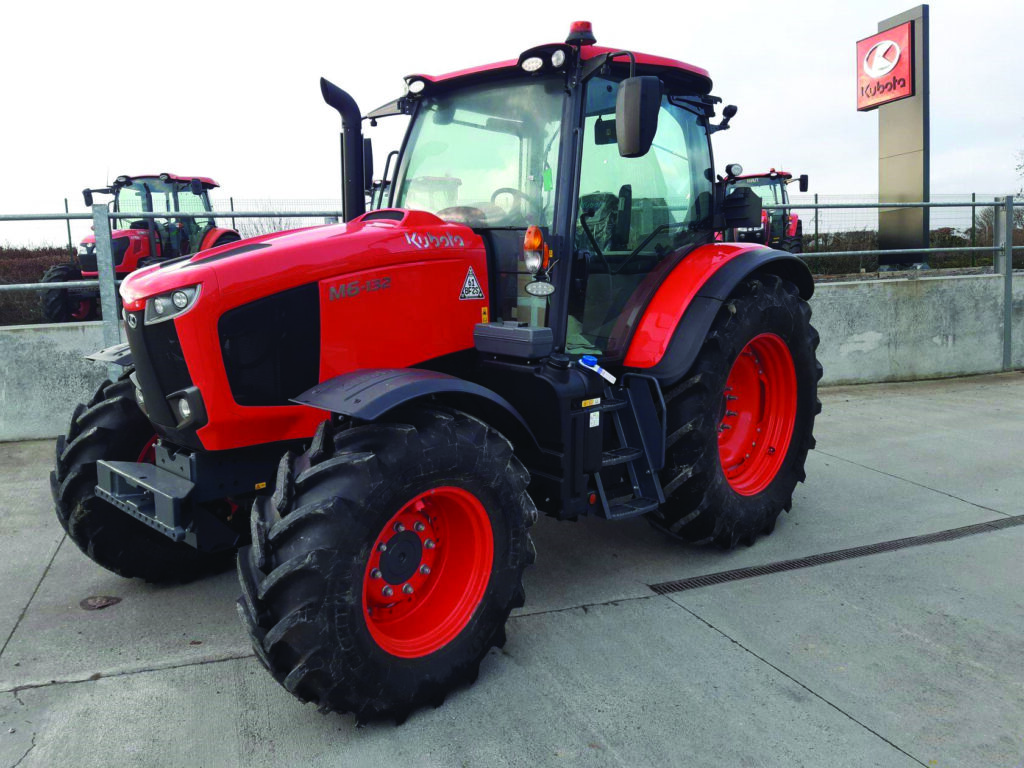
HRN has reduced its branches supplying Kubota kit © HRN
A number of multi-branch dealerships closed depots last year to streamline operations and cut costs.
This included Kubota dealer HRN Tractors, which trimmed its branches from six to four in the summer, having previously operated eight in total.
While running down the Turriff and Kinloss outlets, sales of light construction, groundcare and farm tractors continue out of Insch, Balbeggie, Caithness and Stirling.
Scot Agri
JCB and Massey Ferguson dealer Scot Agri closed its Haddington branch at the end of October.
Sales and support teams were centralised at Kelso and an on-farm parts delivery service introduced for the Haddington area.
Rea Valley Tractors
Rea Valley Tractors closed its Newport, Shropshire, depot at the end of November, with the majority of employees re-deployed to other RVT branches.
According to managing director Matt Mulligan, the closure resulted from the firm’s enhanced capacity and increased field team presence.
Enhance capacity was focused on the Shrewsbury site and the former Russell’s facility at Cubley in Derbyshire.
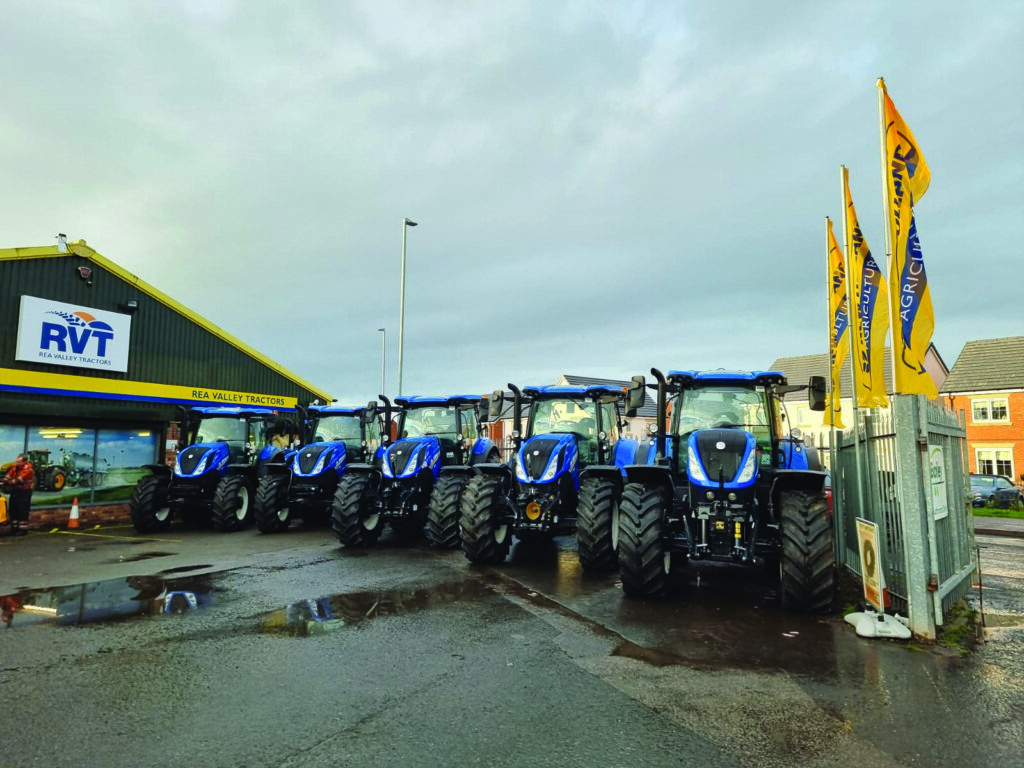
Rea Valley Tractors closed its Newport branch in Shropshire © Rea Valley
Neil Richardson
Norfolk dealer Neil Richardson has chosen to downsize by closing his company’s Oulton premises.
In addition it is foregoing the Kubota agricultural tractor franchise from mid-February this year.
Neil said: “We are shifting our focus to a smaller customer base, allowing us to provide a more personalised and dedicated service, and will continue as a Kubota service agent while another dealership is sought to serve the Norfolk area.”
Farmstar
In similar vein, Farmstar closed its Newark depot in Nottinghamshire on Christmas Eve and relinquished the Kubota M-Series tractor franchise for the area.
Managing director Andrew Waddington said:
“We will continue to serve Yorkshire, Lincolnshire and north Nottinghamshire for Kubota groundcare equipment and tractors of 50hp and below, and all our other franchises remain unaffected.”
He assured the company’s Case IH, Manitou and implement customers that sales, service and parts support would be undiminished via the Marr headquarters, and branches in Brigg and Market Weighton.
Domestic sales slide
At 10,241 units for the 12-month period to the end of December 2024, sales of agricultural tractors were down 13% from 11,816 units in 2023 and approaching 12% lower than the 2022 figure.
This represented a reduction in sales volume of 1,575 and 1,339 units, respectively.
This decline in the market has put pressure on effective sale prices and squeezed margins.
However, general dealership operating costs and stock finance interest rates have increased.
Export sales
Ireland is an important market for dealers geared up to selling good used tractors from Britain.
First-time registrations of used tractors in Ireland to the end of September 2024 were just over 2,100 units, down 6% compared to 2023.
Previous nine-month period numbers came in at just over 2,000 units in 2022 and 3,000 units in 2021.
Source: The figures are compiled by FTMTA, the farm machinery trade association in Ireland

